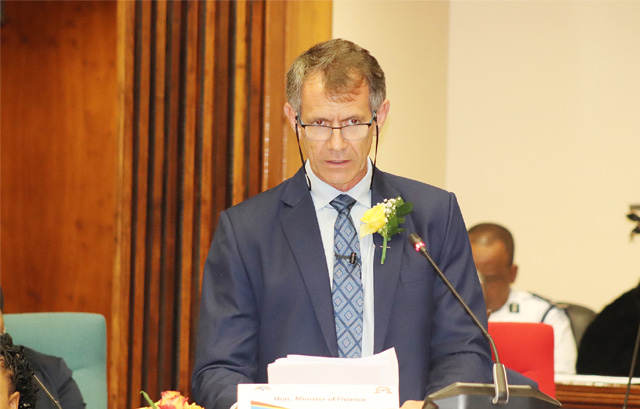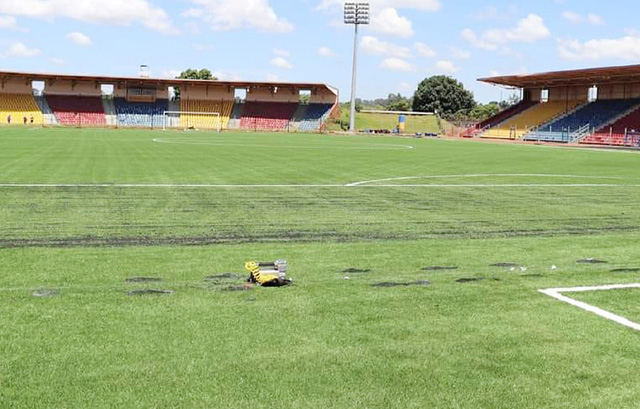By Nokunceda Magagula | 2025-03-27

Minister of Finance Neal Rijkenberg says the E2 billion loan application to AfeximBank was declined due to parliament non- approval.
Rijkenberg said this was due to that the loan was commercial funding which meant that it was more expensive than what the country was used to.
In his responses during the ministry's 2025/2026 budget debate, the minister said this loan would have been used to address arrears challenges.
The minister revealed that the country still had a significant stock of arrears, which was frustrating for both suppliers and the ministry itself.
He shared that the current plan to resolve the issue was to apply for a loan from the World Bank, amounting to E1.8 billion (USD 100 million).
He added that the African Development Bank has agreed to provide a loan of E820.2 million (USD 45 000 000)
The ministry also approached the OPEC Fund for an E107.7 million (USD 50 million) loan and prepared a report for submission to the Johannesburg Stock Exchange (JSE) to address the funding gaps for the current year (2024/25).
However, Rijkenberg noted that this might not be sufficient to close the gaps in the next financial year (2025/26), as the budget clearly indicated that the country required E2 billion in loans funding to settle arrears once and for all.
“If all goes well, the loans are expected to be approved around June/July, and all of these loans are concessional,” said the minister.
Senator Linda Nxumalo requested for clarity on GDP/Debt Ratio, asking why it was too high considering that the minister presented that E5 billion debt financing for the financial year 2025/26.
In response, the minister said the debt/GDP ratio for Eswatini was at 45 per cent with the aim of taking it lower to 40 per cent.
He said in the SADC regions the recommendation was to keep the Debt/GDP ratio below 60 per cent, but the current average on the continent is 70 per cent.
“Eswatini has a healthy space in relation to Debt/GDP ratio. It is true that the country stands a risk with more funding coming from SACU receipts and if at any point the country loses SACU receipts, there is still an allowance to move from 45 per cent to 60 per cent,” said the minister.He said there would be sufficient time to explore alternative funding and adapt to the new normal.
Nevertheless, he said the country was more conscious of the risks of relying on external funding and takes a conservative approach to remain on a sustainable and stable path.
Previously, the minister had assured that the country’s financial situation would improve in the coming months. He acknowledged that government was struggling to keep up with payments but expects the situation to ease once SACU payments come in by end of this month.
“Yes, we are a little behind on payments, and understand that this is causing frustration. But by April, things will be back on track,” he stated.
The minister said government was committed to clearing arrears, acknowledging that the continued delays were ‘embarrassing’ and needed to be dealt with decisively.
“Our main goal is to clear all outstanding payments once and for all. The issue of unpaid suppliers has been a long-standing problem, and we cannot allow it to continue. By April, all suppliers should be fully paid,” he assured.
share story
Post Your Comments Below
HIV and AIDS have been prominent in Eswatini health discussions for decades, but the connection w...

GET ready to groove this weekend at the House Musiq Festival (HMF)!
Join in on the party as...

SOMHLOLO National Stadium is set to take centre stage once again, with the Confederation of Afric...

Events of the past few weeks will forever be etched in our history books as the period during whi...
All material © Swazi Observer. Material may not be published or reproduced in any form without prior written permission.
Design by Real Image Internet